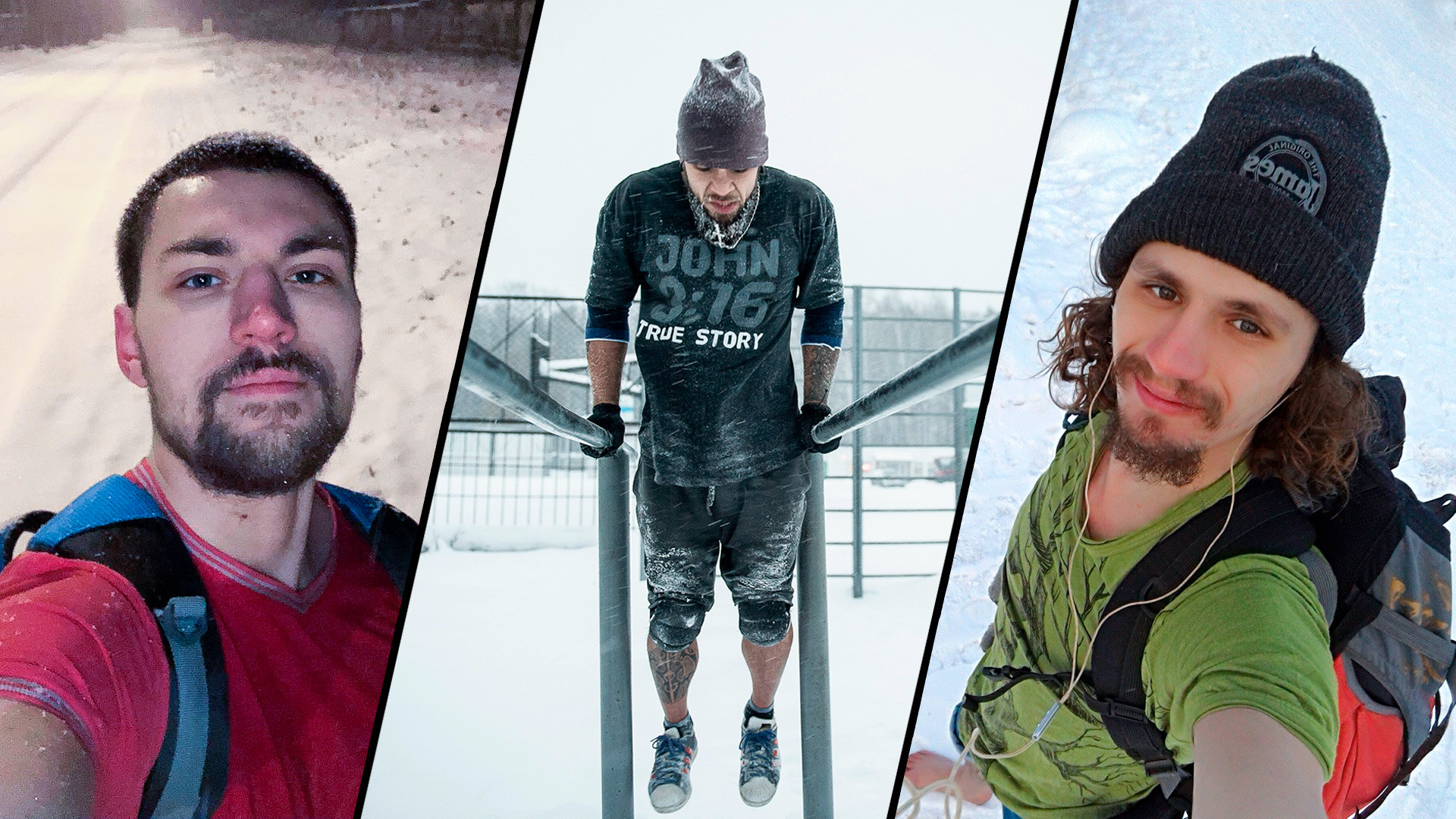
Don’t be surprised to see a few people strolling around in Moscow in winter wearing only a T-shirt. We talked to some of them to find out why they put their bodies at risk, and what they get from such experiments.

I love experiments. September 2018 turned out rather warm, and when the cold snap came, I couldn’t help wondering what would happen if I just carried on wearing the same T-shirt. So I did.
My body adapted quite easily to the cold — even at -1C it didn’t feel that bad. But one day I decided to go outside in a T-shirt when it was -10C...
My brain was literally shouting: “You’re cold, put something on now!” The most difficult thing in this situation is to override your survival instinct to get warm.

People around me though I was mad. One woman in the street took me by the hand and tried to give me some warm clothes.
My first walk lasted about an hour, and I decided to do it again. The only time I felt uncomfortable was at -20С, but not enough to put on thousands of sweaters.
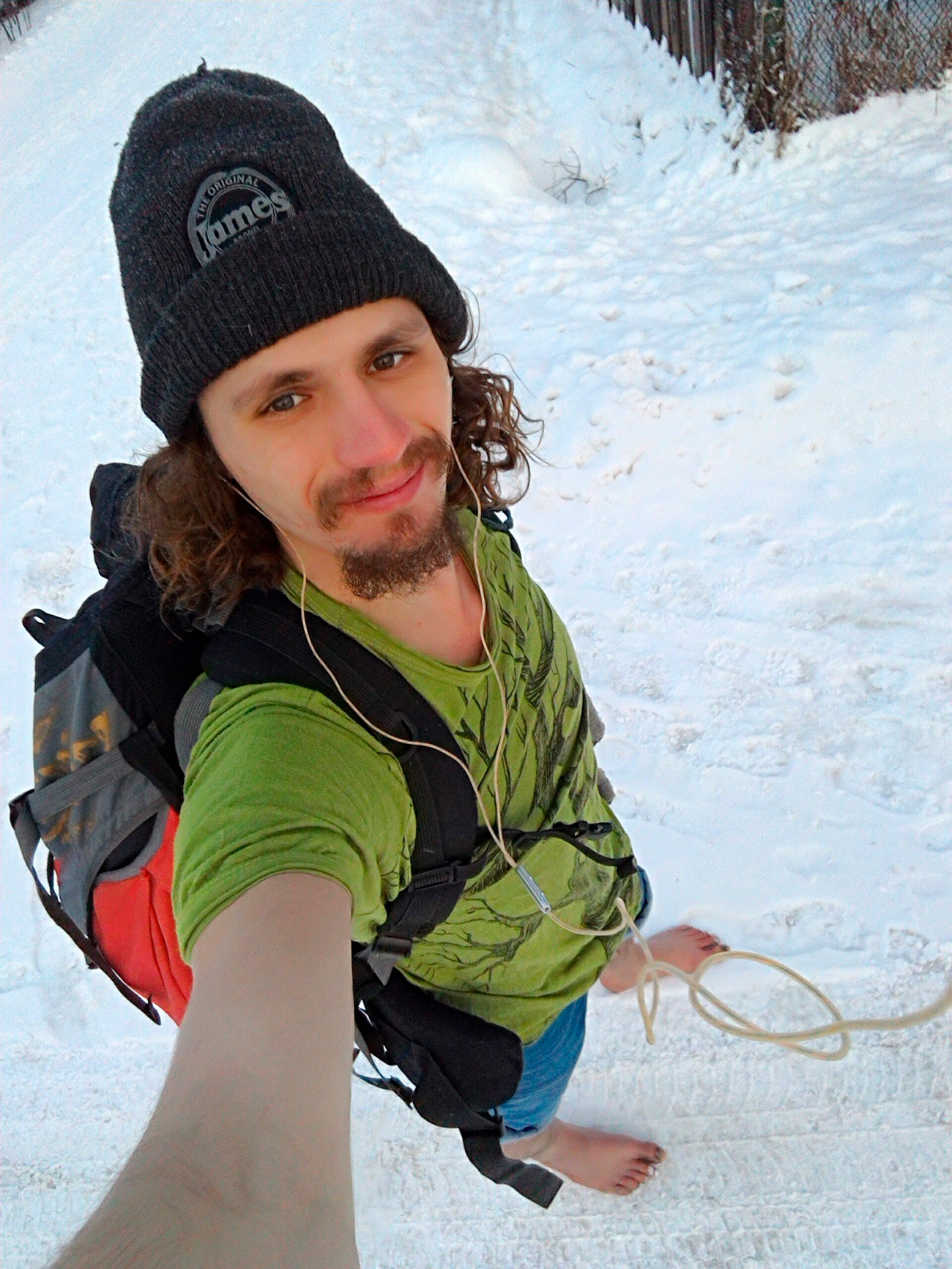
I started walking barefoot and wearing light clothes in winter when I was 19. Back then I was trying to find myself. I stopped drinking alcohol, dropped out of college, had girlfriend trouble. In the spring, I went to a festival near St Petersburg where I walked barefoot all week. When I got back to Moscow, I gave up footwear altogether. People asked me why, but I couldn’t explain. It wasn’t based on any personal convictions, just curiosity. People’s attention helped keep me warm, I have to admit.
I went barefoot all through the summer and fall. Winter was chillier, so the first winter I went barefoot wearing fleece overalls, the second I went barefoot wearing fleece trousers and a jacket, and the third in shorts and a T-shirt.
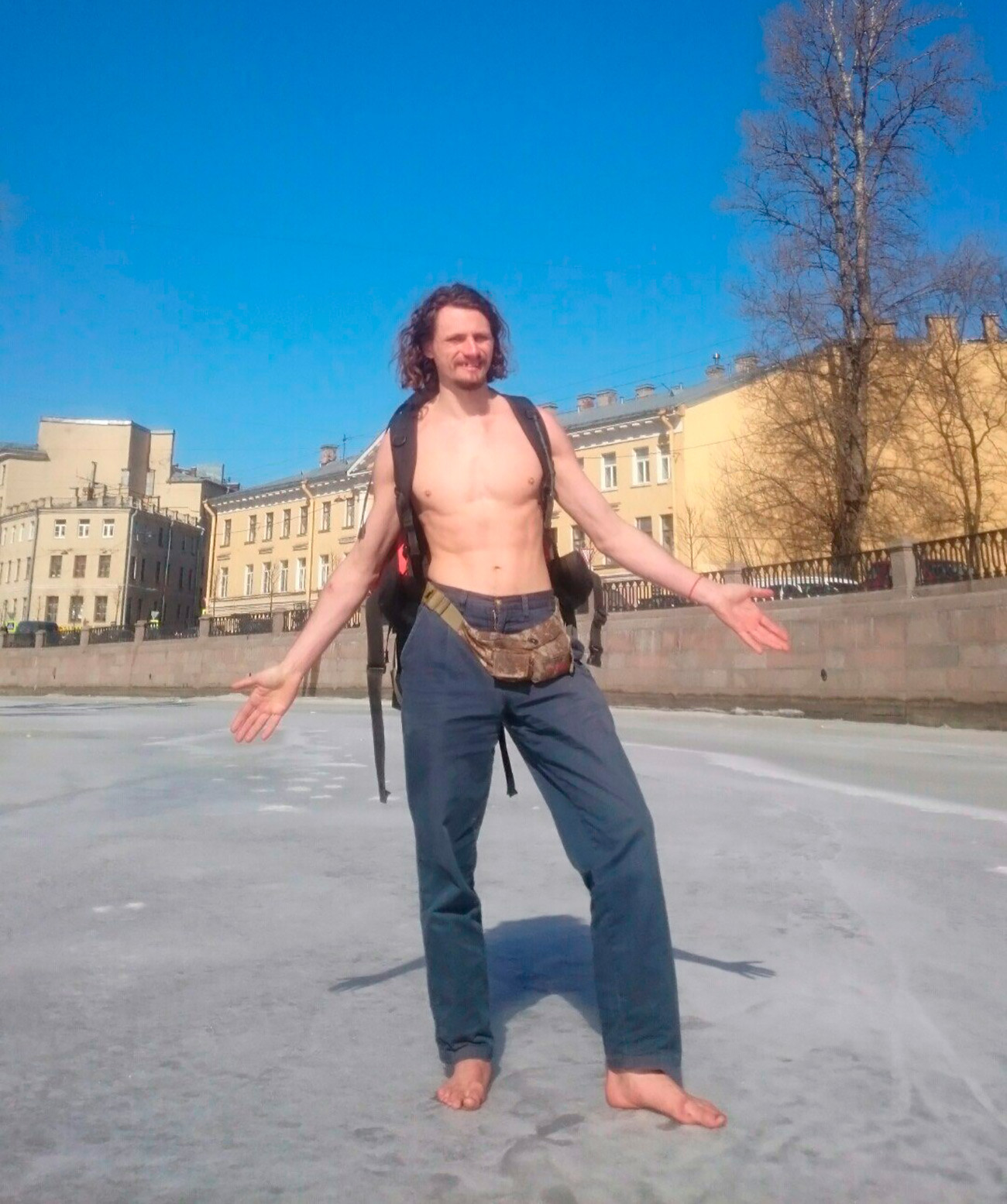
My very first walk filled me with positive emotions and seemed to challenge me to keep doing it. True, I was afraid at first and carried warm shoes and clothes in my backpack. But in the past ten years, they’ve not been needed once.
In the fourth year, I switched to light clothes made from natural fabrics. I realized that if the skin can breathe, it adapts more easily to changes in temperature, so you hardly feel the cold.
Cold walks alter your perception of reality. You feel all-powerful, the brain goes into overdrive. Besides walking in the cold, I sometimes slept outside and refrained from water and food. I became a vegetarian and regularly bathed in ice holes. I don’t do much of that anymore, but still love to go barefoot and wear light clothes in the cold — I’ll probably never stop doing that.
My first experience of being outside without outerwear was back in school when I ran outside for five minutes to show off to friends. I got pneumonia as a result, and until the age of 25 I dressed warmly, sometimes too much. It didn’t improve my health at all. I still fell ill a lot with asthma, bronchitis, allergies, sinusitis, pneumonia, you name it.
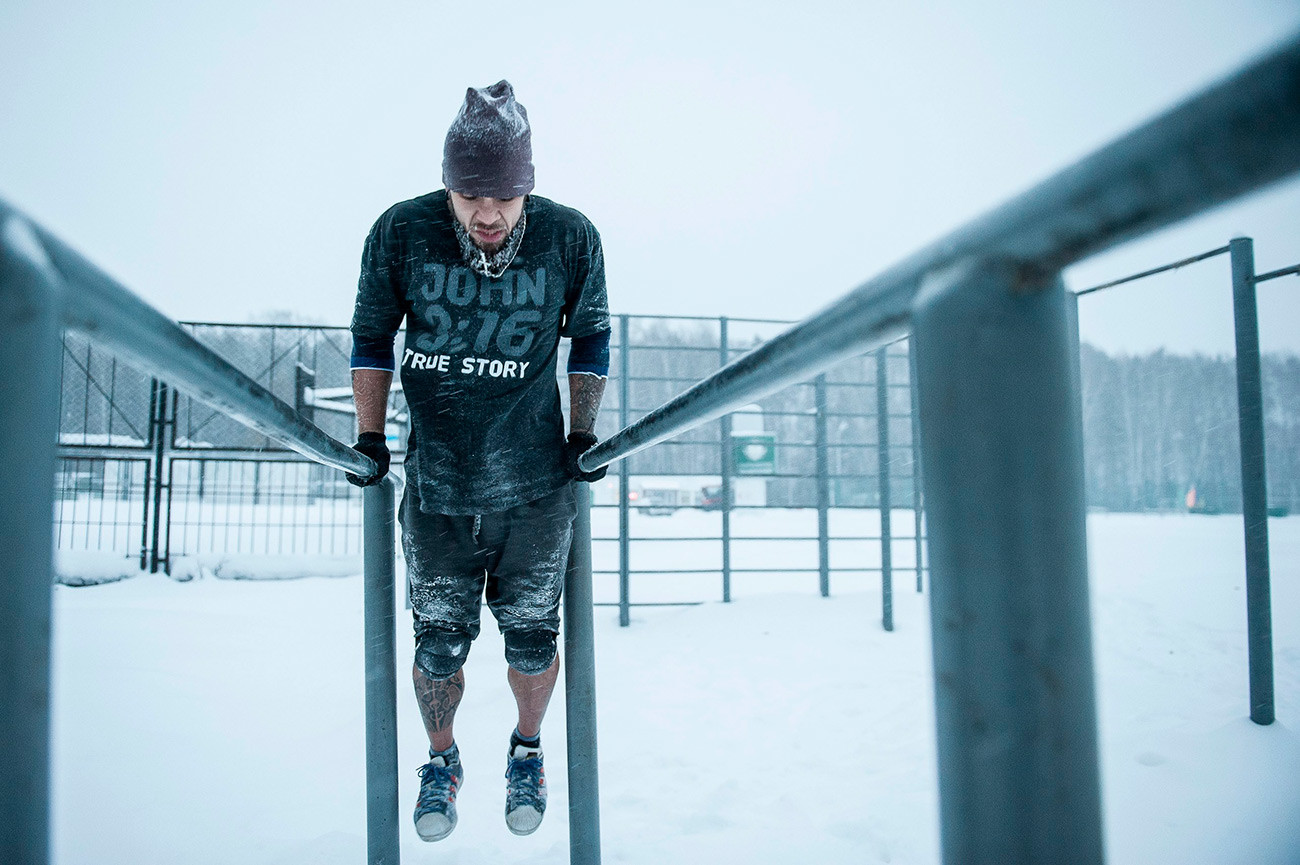
At some point, I decided to condition myself to the cold. I’d been taking contrast showers for about five years, but realized that it wasn't enough. In 2015, I decided I had to try something more extreme. So I began to reduce my layers of clothing. First, I wore a jacket and sweater, then swapped the jacket for a light windbreaker, then went outside only in a sweater. It was all totally intuitive — I didn't read any cold-conditioning tips or anything. Then one day, I decided to walk to the store in just a T-shirt, it was -20C.
I almost ran there, my hands were literally stinging from the cold. It was so nice to get back to the warmth of my apartment block, I’ll remember that feeling forever.
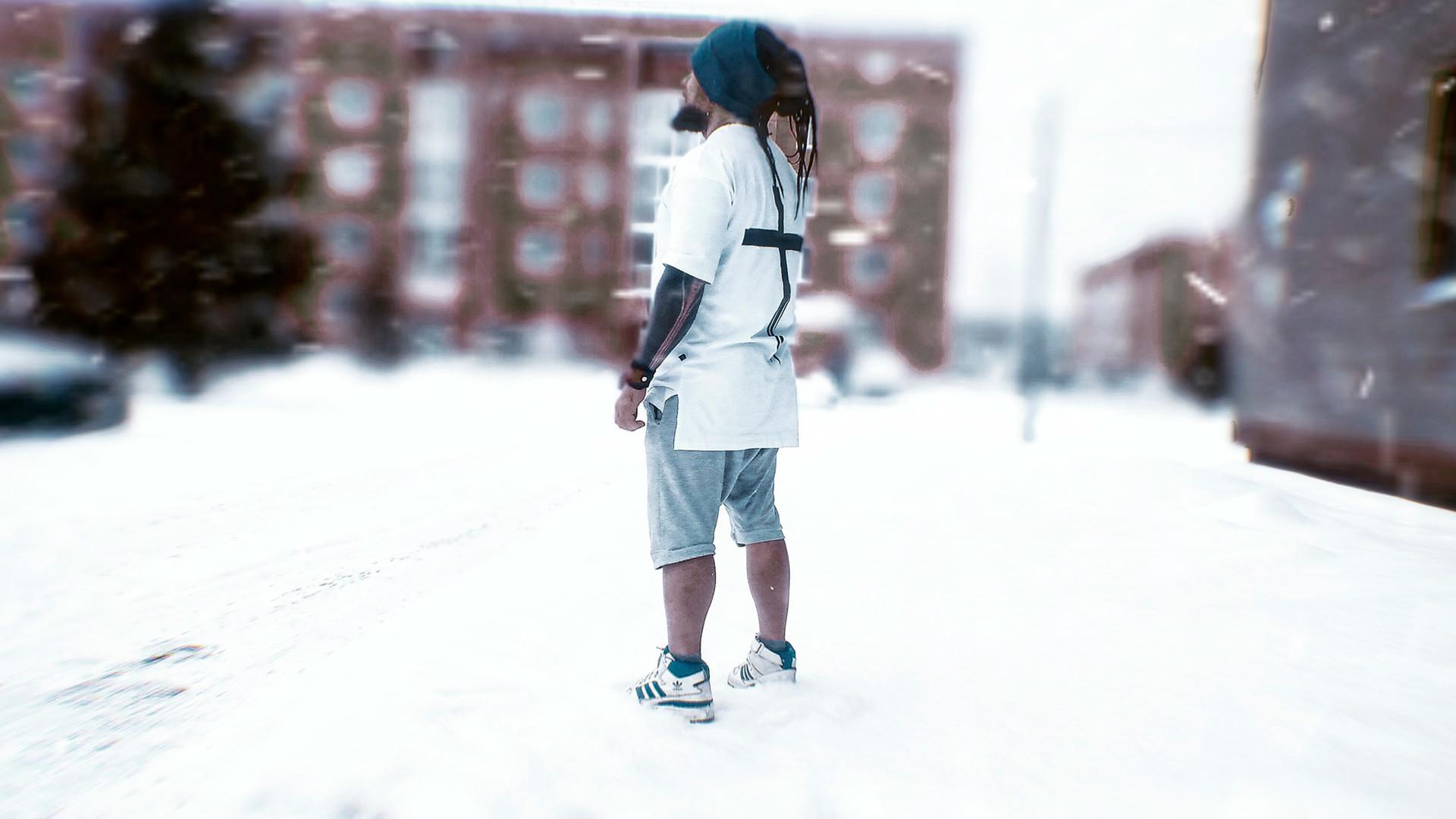
Ever since, I've loved the contrast of going from cold outside to warmth inside, I dig that sensation. Back then, I thought I'd get sick right away, but no. I've realized I enjoy challenging my body to overcome weakness.
I've been cured of many of my former illnesses, my organism has grown stronger. I can’t say it’s the ideal way for everyone to increase their immunity, though. The main thing is to be careful and approach it gradually.
If using any of Russia Beyond's content, partly or in full, always provide an active hyperlink to the original material.
Subscribe
to our newsletter!
Get the week's best stories straight to your inbox